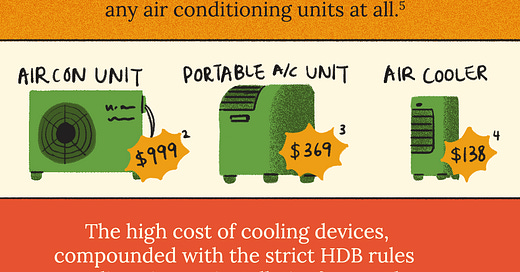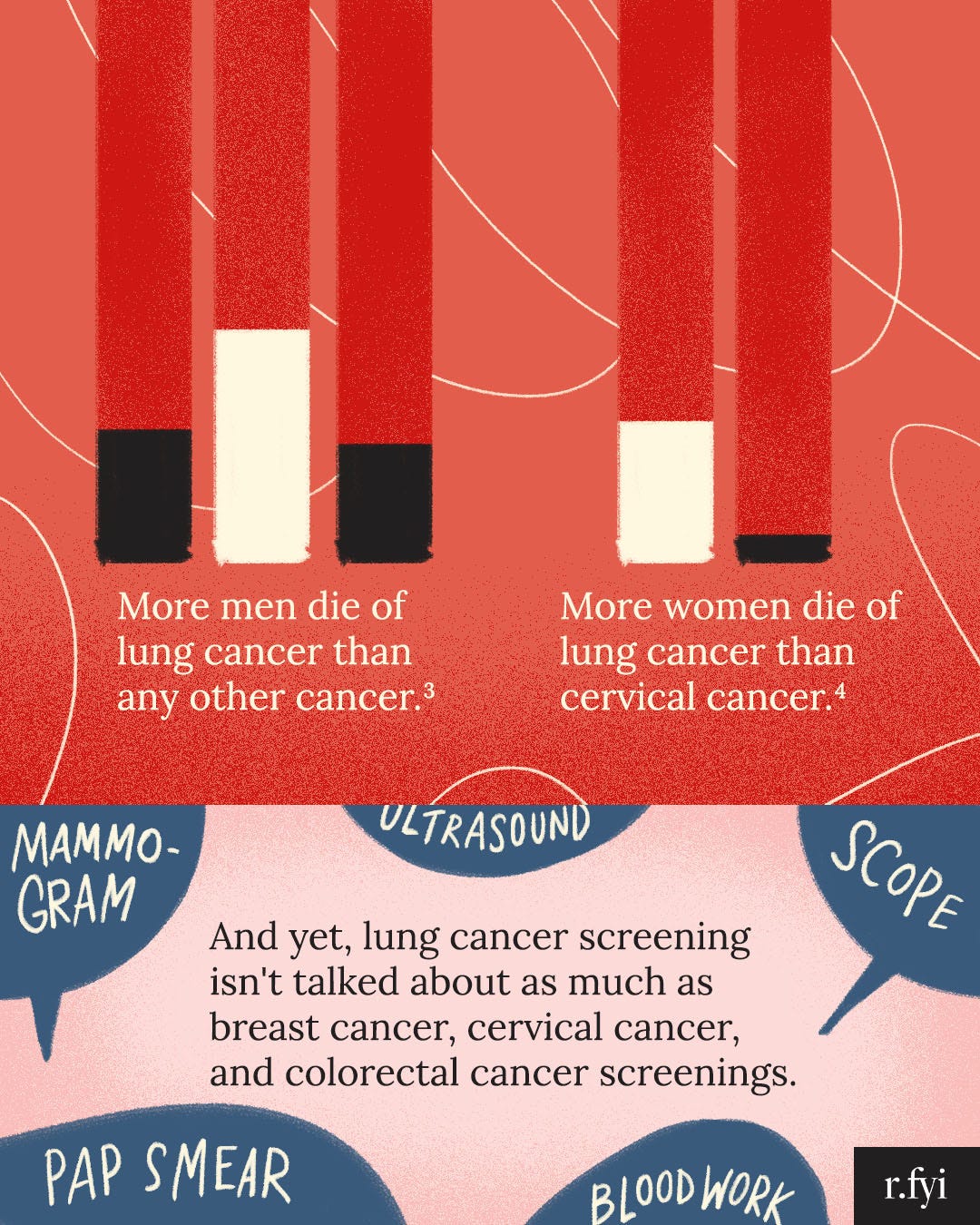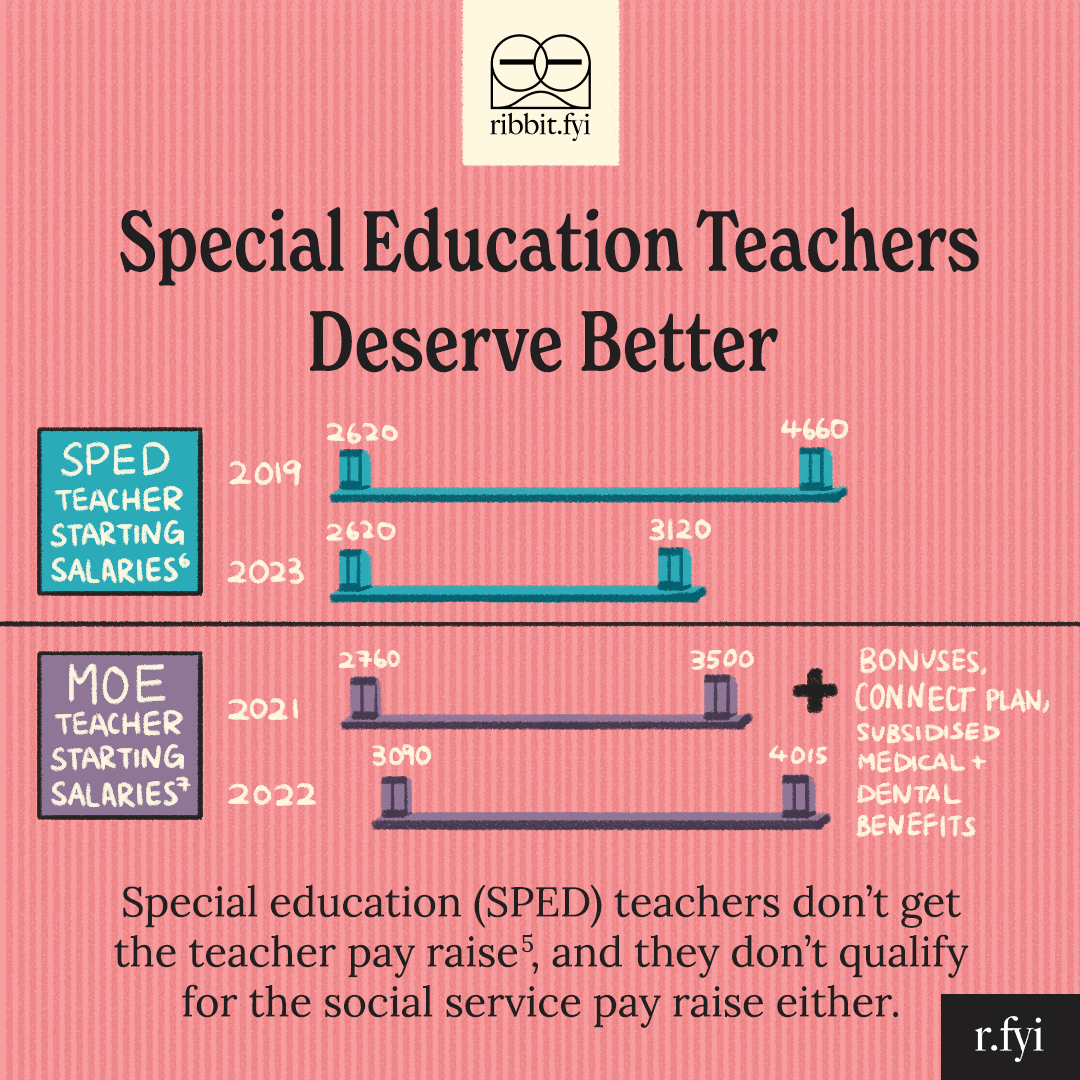Issue #4: Checking Our Climate Privilege And Getting Checked For Lung Cancer
A week of uncomfortable truths
It’s a bit of a serious week when it comes to topics, but these things are important. We hope that you can help to spread the word if these causes are relevant to you! — Chun, Assistant Lead
Heat Inequality In The Air-Conditioned Nation
Climate change is not an equaliser—when it comes to food security, housing security and staying healthy, individuals and families in the lower income brackets are suffering disproportionately.
Marlina, an SG Climate Rally speaker and community development volunteer, was kind enough to share her firsthand experience of how her HDB rental estate suffers from temperature and weather extremes, even within the four walls of their homes.
Climate privilege isn’t something that is discussed often, but in our daily conversations, it’s important to note that not everyone will be able to deal with the rising temperatures and prices easily. Working on this story has shown us that the social safety net needs to be widened, and while government action is important, we can all do our own little part to help those around us.
If you or your team would like to help with Marlina’s social work, you can reach out to her via Whatsapp, at 83505007.
Read: “I’m Not Wiping My Tears, I’m Wiping My Sweat”
Lung Cancer Is Often Discovered Late—And Kills More Women Than Cervical Cancer
We had two misconceptions before we started working on this comic. 1) You can only get lung cancer if you smoke, and 2) A chest X-ray would suffice for detecting early signs of lung cancer. Those were both disproved.
The statistics and research that we found actually showed that ALL of us need to be more aware of lung cancer risks, and also the effective early detection methods for this disease. Get checked, and if you have friends that still smoke or live with smokers, ask them to get checked too!
Read: “I’m Young, Why Should I Care About Lung Cancer?”
Visualised: Special Education Teachers Are Underpaid
Special Needs Educators, or SPED for short, are often overlooked—they weren’t eligible for the teacher’s pay increment, OR the social worker’s pay increment—because being a SPED teacher falls somewhere in between.
To write this story, we looked at historical pay data from both the Ministry of Education and the National Council of Social Service, along with anecdotal interviews from a few of the educators themselves.
High turnover rates and a feeling of under-appreciation are a persisting sentiment amongst SPED teachers everywhere, even though the job they do is important. We explain the difference in career paths for teaching staff, and why we need to start giving SPED teachers the respect—and compe
Read: Special Education Teachers Deserve Better
If you’ve made it this far, thanks for reading! If someone you know enjoys bite-sized data content as well, we hope that you’ll share this article with them. And if you’re not subscribed yet then…please do!





